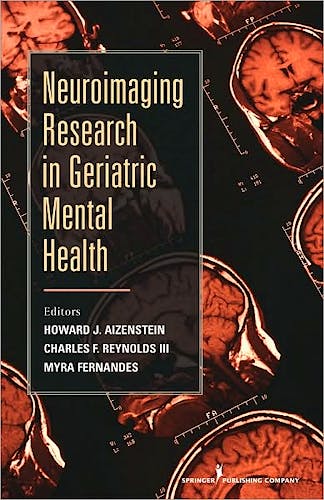

No hay productos en el carrito



Neuroimaging Research in Geriatric Mental Health
Aizenstein, Howard
1ª Edición Marzo 2010
Inglés
Tapa dura
500 pags
1400 gr
null x null x null cm
ISBN 9780826110992
Editorial Springer Publishing Co
LIBRO IMPRESO
-5%
98,83 €93,89 €IVA incluido
95,03 €90,28 €IVA no incluido
Recíbelo en un plazo de
2 - 3 semanas
The effect of aging on brain function has become a topic of great interest in psychology, psychiatry, neuroscience, and gerontology over the past decade. Current research has fundamentally changed how the aging process is viewed. No longer is it consider inevitable that cognitive declines begin at middle age; the majority of elderly undergo a perfectly normal aging process that produces relatively benign changes in cognitive abilities. However, it is also understood that a minority of the elderly population can expect to suffer through an "abnormal aging" process which significantly increases the likelihood of cognitive impairment and dementia. For example, by comparison to young and middle aged adults, older adults are significantly more vulnerable to depression, mania, schizophrenia, substance abuse, and dementias such as Alzheimer's Disease. It is now generally believed that by exploring the neurobiological basis of these patient populations, scientists can begin to understand why abnormal aging happens and what can be done to treat it.
This volume, the first book to apply the brain imaging techniques of neuroscience
to the geriatric population, examines the state-of-the-art in our understanding
of the aging brain. Edited by a key figure in functional magnetic resonance
imaging, the book focuses on specific populations and clinical syndromes.
Table of Contents
I INTRODUCTION
1.The Expanding Role of Neuroimaging Research in Geriatric Psychiatry
II. IMAGING MODALITIES
2. Computed Tomography (CT)
3.Magnetic Resonance Imaging (MRI)
4. Magnetic Resonance Spectroscopy (MRS)
5. Single Photon Emission Computed Tomography (SPECT)
6. Positron Emission Tomography (PET)
7. Functional MRI
III IMAGE PROCESSING
8. Volumetric analyses of structural imaging data: VBM and ROI-based approaches
9. Atrophy Correction for functional imaging analyses
10. Common Pitfalls in fMRI analyses
11. Software Packages
IV AGING
12. Structural brain changes associated with normal aging
13. The HAROLD model of neurocognitive aging
14. New insights into the functional neuroanatomy of aging
V AFFECTIVE DISORDERS
15. Vascular Depression Hypothesis
16. Hippocampal Changes with Depression
17. White matter abnormalities in geriatric depression
18. Late-life bipolar disorder
VI COGNITIVE DISORDERS
19. Alzheimer's Disease
20. Vascular Dementia
21. Frontotemporal Dementia
22. Mild Cognitive Impairment
23. Functional Imaging changes with dementia
24. Early detection and monitoring of AD with MRI: the ADNI project
VII PSYCHOTIC DISORDERS
25. Late-Life Schizophrenia
26. Psychosis of Dementia
VIII NEW IMAGING MODALITIES
27. Diffusion Tensor imaging (DTI)
28. Magnetic Resonance Spectroscopy
29. Magnetization Transfer Ratio (MTR)
30. Amyloid imaging
Author Biographies
Dr. Aizentstein is an assistant professor of psychiatry at the University
of Pittsburgh Medical School and Director of its Geriatric Psychiatry Neuroimaging
Laboratory. He received a joint M.D./Ph.D. in medicine and computer science
from the University of Illinois, Urbana-Champaign in 1995. Dr. Aizenstein is
specialty certified in psychiatry and geriatric psychiatry by the American Board
of Psychiatry and Neurology and is a licensed M.D. in the State of Pennsylvania.
His main area of research, which has been funded by the National Institute of
Mental Health and the National Institute on Aging, is depression later life.
In 2004, he was awarded a "Young Investigators" grant by the National
Alliance for Research on Schizophrenia and Depression for his work on the physiological
basis of cognitive impairment in the depressed elderly.
© 2026 Axón Librería S.L.
2.149.0